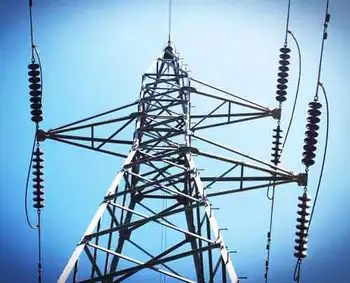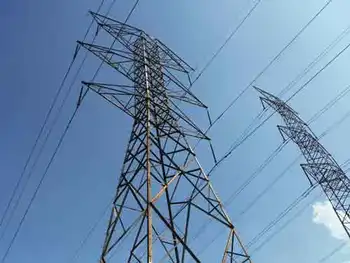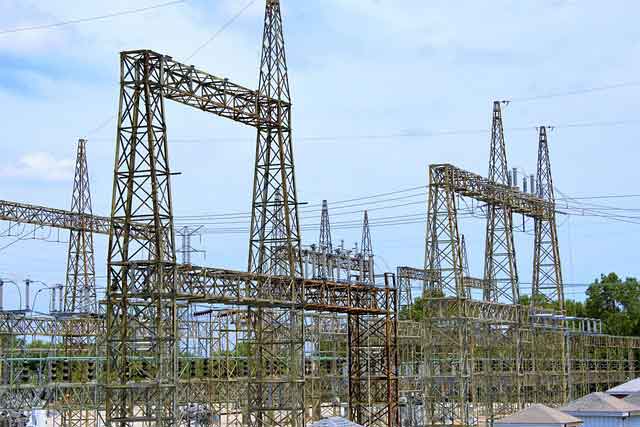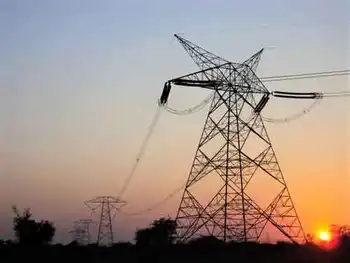Berlin Electric Utility APPA Safety Award recognizes Gold Designation performance in public power, highlighting OSHA-aligned incident rates, robust safety culture, worker safety training, and operational reliability that keeps the community's electric service resilient.
Key Points
A national honor for Berlin's Gold Designation recognizing safety performance, worker protection, and reliable service.
✅ Gold Designation in 15,000-29,999 worker hours APPA category
✅ OSHA-based incident rate and robust safety culture
✅ Training, PPE, and reliability focus in public power operations
The Town of Berlin Electric Utility Department has been recognized for its outstanding safety practices with the prestigious Safety Award of Excellence from the American Public Power Association (APPA), a distinction also reflected in Medicine Hat Electric Utility for health and safety excellence, highlighting industry-wide commitment to worker protection.
Recognition for Excellence
In an era when workplace safety is a critical concern, with organizations highlighting leadership in worker safety across the sector, the Town of Berlin Electric Utility Department’s achievement stands out. The department earned the Gold Designation award in the category for utilities with 15,000 to 29,999 worker hours of annual worker exposure. This category is part of the APPA’s annual Safety Awards, which are designed to recognize the safety performance of public power utilities across the United States.
Out of more than 200 utilities that participated in the 2024 Safety Awards, Berlin's Electric Utility Department distinguished itself with an exemplary safety record. The utility’s ranking was based on its low incidence of work-related injuries and illnesses, alongside its robust safety programs and strong safety culture.
What the Award Represents
The Safety Award of Excellence is given to utilities that demonstrate effective safety protocols and practices over the course of the year. The APPA evaluates utilities based on their incident rate, which is calculated using the number of work-related reportable injuries or illnesses relative to worker hours. This measurement adheres to guidelines established by the Occupational Safety and Health Administration (OSHA), ensuring a standardized approach to assessing safety.
For the Town of Berlin Electric Utility Department, achieving the Gold Designation award signifies a year of outstanding safety performance. The award reflects the department’s dedication to preventing accidents and creating a work environment where safety is prioritized at every level.
Why Safety Matters
For utilities like the one in Berlin, safety is not just about preventing injuries—it's about fostering a culture of care and responsibility. Electric utility workers face unique and significant risks, ranging from the dangers of working with high-voltage systems, including hazards near downed power lines that require extreme caution, to the physical demands of the job. A utility’s ability to minimize these risks and keep its workforce safe is a direct reflection of its safety practices, training, and overall management.
The commitment to safety extends beyond just the immediate work environment. Utilities that place a high value on safety typically invest in ongoing training, safety gear, and processes, and even contingency measures like staff living on site during outbreaks, that ensure all employees are well-prepared to handle the challenges of their roles. The Town of Berlin Electric Utility Department has taken these steps seriously, providing its workers with the resources they need to stay safe while maintaining the power supply for the local community.
The Importance of Worker Safety in Public Power
The American Public Power Association’s Safety Award program highlights the best practices in public utilities, which, as the U.S. grid overseer's pandemic warning reminded the sector, play a crucial role in providing essential services to communities across the country. Public power utilities, like Berlin’s, are governed by local or municipal entities rather than for-profit corporations, which often allows them to have a closer relationship with their communities. As a result, these utilities often go above and beyond when it comes to worker safety, understanding that the well-being of employees directly impacts the quality of service provided to residents.
For the Town of Berlin, this award not only highlights the utility's commitment to its employees but also reinforces the importance of the work that public utilities do in keeping communities safe and powered. Berlin's recognition underscores the significance of maintaining a safe work environment, especially when the safety of first responders and utility workers, as seen when nuclear plant workers raised concerns over virus precautions, directly impacts the public’s access to reliable services.
What’s Next for Berlin’s Electric Utility Department
Receiving the Safety Award of Excellence is a remarkable achievement, but for the Town of Berlin Electric Utility Department, it’s not the end of their safety journey—it’s just one more step in their ongoing commitment to improvement. The department’s leadership, including the safety team, has emphasized the importance of continually evaluating and enhancing safety protocols to stay ahead of potential risks. This includes adopting new safety technologies, refining training programs, and ensuring that all employees are involved in the process of safety.
As the Town of Berlin looks forward to the future, its focus on worker safety will remain a top priority. Maintaining this level of safety is not only crucial for the health and well-being of employees but also for ensuring the continued success of the community’s utility services.
Community Impact
This recognition also serves as an example for other utilities in the region and across the country. By prioritizing safety, the Town of Berlin Electric Utility Department sets a standard that other utilities can aspire to. In a time when worker safety is more important than ever, Berlin’s commitment to best practices provides a model for others to follow.
Ultimately, the safety of utility workers is a reflection of a community’s dedication to its workforce and its commitment to providing reliable, uninterrupted services. For the residents of Berlin, the recognition of their local electric utility department’s safety practices means that they can continue to rely on a safe, secure, and resilient power infrastructure, while staying mindful of home risks such as overheated power strips that can spark fires.
Related News












